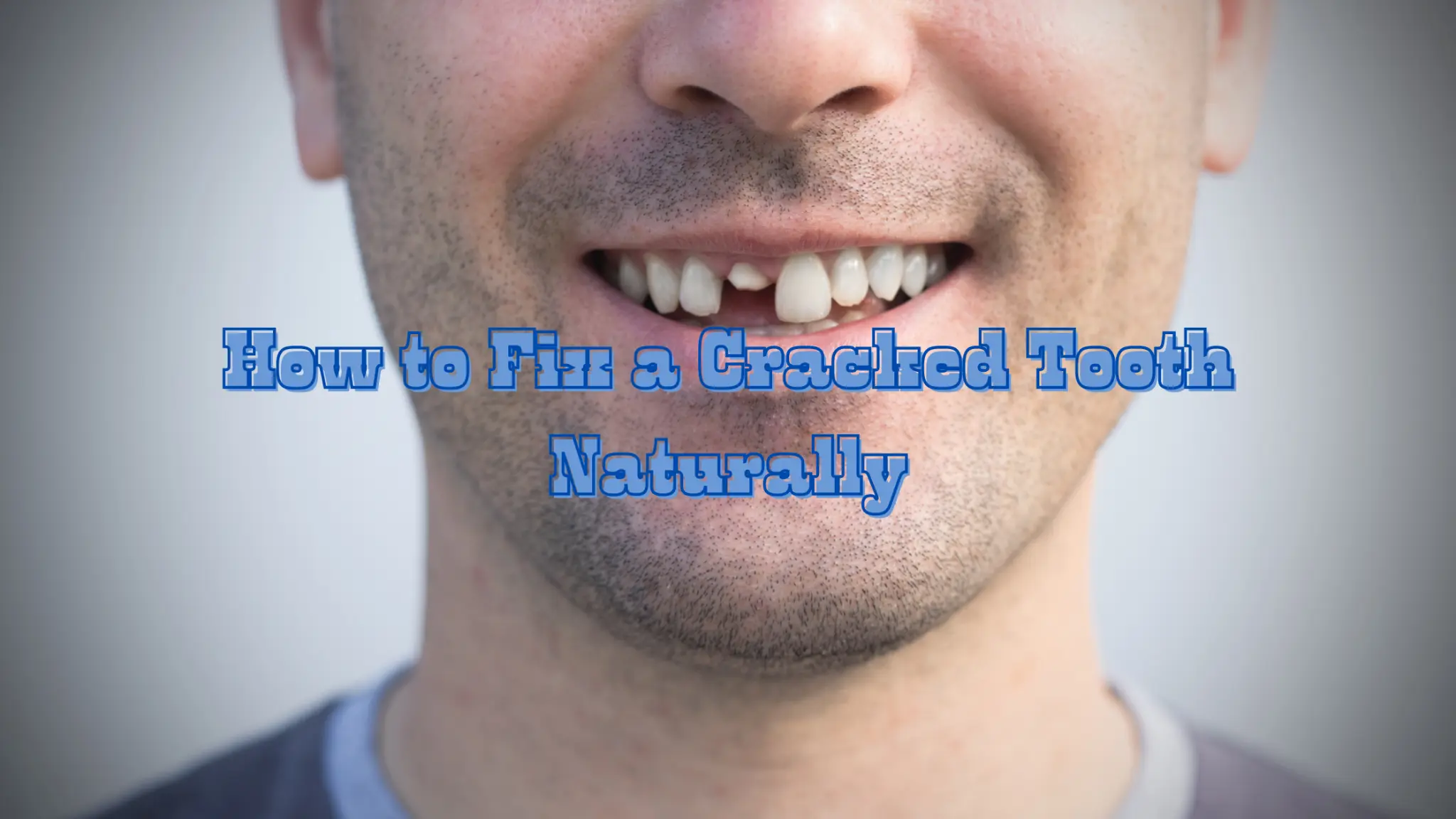How to Fix a Cracked Tooth Naturally
Introduction
Oral hygiene is very essential, and one of the everyday challenges most individuals go through is a chipped tooth. Depending on its cause, it may be as a result of a physical attack on the mouth organ, an attempt to bite an object harder than the teeth or just normal wear and tear; cracked teeth can be sensitive and worrying. Although it is advisable to visit a dentist for severe cases, some home remedies can relieve pain and encourage the healing of small cracks. This article will guide you on how to fix a cracked tooth naturally, highlighting effective remedies and preventive measures.
Understanding a Cracked Tooth
Causes of a Cracked Tooth
Cracked teeth can result from various factors, each contributing to the weakening or breaking of the tooth’s structure:
- Physical Trauma: A crack in a tooth may be as a result of an accident, a fall, or as a result of a sports related injury.
- Chewing on Hard Foods: This is caused by the act of biting Ice, Nuts or even Hard Candies.
- Teeth Grinding (Bruxism): Regular grinding or clenching of teeth is mostly done at night, leading to the formation of cracks.
- Age-Related Wear and Tear: Over the years, the teeth have had their natural tendency to get weaker and, therefore, more prone to develop cracks.
Symptoms of a Cracked Tooth
Identifying the signs of a cracked tooth is essential to address the issue promptly:
- Pain When Chewing or Biting: A cracked tooth is sensitive to pressure particularly when placing pressure on the tooth while chewing.
- Sensitivity to Temperature Changes: By this time, the tooth may develop a feeling of heat or cold on taking such foods or drinks.
- Intermittent Tooth Pain: Pain can come and go, depending on the position of the crack.
- Swollen Gums Around the Affected Tooth: This causes inflammation and swelling around the affected cracked tooth if the crack itself reaches the surface of the gum.
Natural Remedies for a Cracked Tooth
For minor cracks, several natural remedies can help manage symptoms and promote healing:
Clove Oil
- How It Helps: Clove oil is a source of eugenol, which is a herby anaesthetic and an antibiotic that will help to prevent infection and minimise pain.
- Method: Dip a small piece of cotton in the clove oil and put it gently on the tooth that is affected. But avoid consuming too much of it because it has quite a strong flavour.
Garlic
- How It Helps: Garlic also has an antibiotic sensitisation effect which will reduce pain and inflammation in the affected cracked tooth.
- Method: To liberate the compound allicin, press a garlic clove against the sore tooth or chew on the clove directly.
Saltwater Rinse
- How It Helps: These solutions can help to wash out the area, decrease inflammation, and spur the healing process by not allowing bacteria to survive on the skin.
- Method: Swish one teaspoon of salt in warm water and rinse the mouth severing times a day, preferably after meals.
Turmeric Paste
- How It Helps: This spice contains strong elements with anti-inflammatory substances, which can also eliminate potential bacterial actions that trigger pain and swelling.
- Method: Boil some water and make a paste from turmeric powder and apply on the cracked tooth for several minutes and then rinse.
Peppermint Tea Bags
- How It Helps: Peppermint has cooling and numbing effects that can provide temporary relief from tooth pain.
- Method: Applying a cool peppermint tea bag on the affected area for about five to ten minutes should help with the discomfort.
Dietary and Lifestyle Changes to Support Healing
To support the natural healing process, consider making the following dietary and lifestyle adjustments:
- Avoid Hard Foods: One must ensure that they do not take hard or crunchy foods since they can worsen the crack and increase the extent of damage.
- Hydration and Saliva Production: Any wounds that could be present in a dental patient’s mouth should be cleaned with saliva; hence, one should hydrate regularly to ensure saliva production.
- Calcium and Vitamin D: It is recommended that you consume more foods that are rich in calcium and vitamin D to maintain appropriate dental health.
When to Seek Professional Help
While natural remedies can be effective for minor cracks, certain situations require professional dental care:
- Cracks that do not heal with normal medicines, intense pain that does not vanish with home remedies, the appearance of deep lines, and the growth of pimples or pus or fever may be a signal for a dentist.
- However, alternative remedies are helpful only in treating symptoms; the patient should consult a dentist in severe cases to avoid such consequences as infections and tooth loss.
Conclusion
The significant issue that requires the client to take the necessary measures when dealing with a cracked tooth is the fact that the problem area’s susceptibility to various complications increases. However, using natural treatments may be helpful in dealing with pain and contribute to minor recovery procedures; it is very important to consult a professional dentist if the problem is severe. This means that if you make use of natural remedies in addition to measures against the progression of decay, you will have well-developed and healthy teeth for future use.




Post Comment